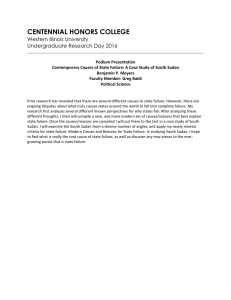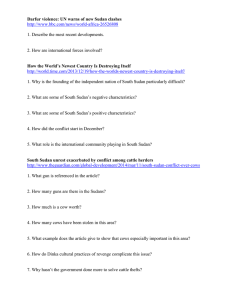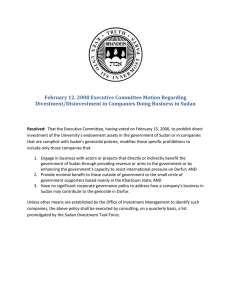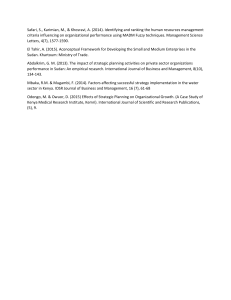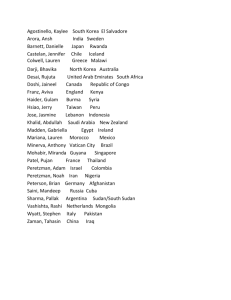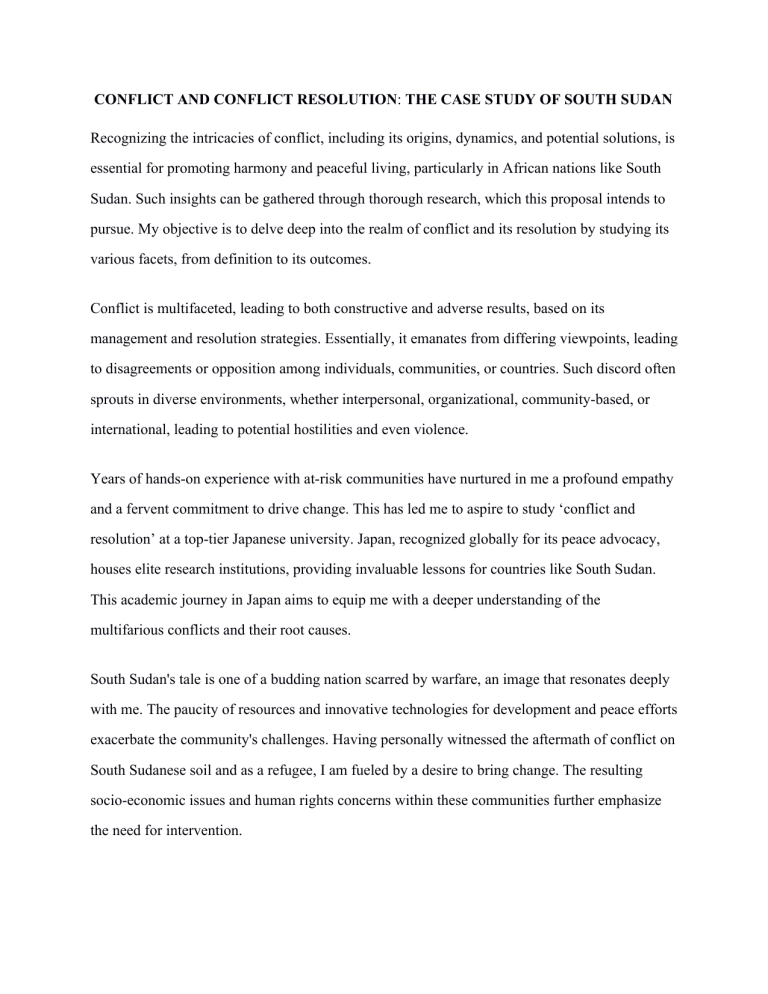
CONFLICT AND CONFLICT RESOLUTION: THE CASE STUDY OF SOUTH SUDAN Recognizing the intricacies of conflict, including its origins, dynamics, and potential solutions, is essential for promoting harmony and peaceful living, particularly in African nations like South Sudan. Such insights can be gathered through thorough research, which this proposal intends to pursue. My objective is to delve deep into the realm of conflict and its resolution by studying its various facets, from definition to its outcomes. Conflict is multifaceted, leading to both constructive and adverse results, based on its management and resolution strategies. Essentially, it emanates from differing viewpoints, leading to disagreements or opposition among individuals, communities, or countries. Such discord often sprouts in diverse environments, whether interpersonal, organizational, community-based, or international, leading to potential hostilities and even violence. Years of hands-on experience with at-risk communities have nurtured in me a profound empathy and a fervent commitment to drive change. This has led me to aspire to study ‘conflict and resolution’ at a top-tier Japanese university. Japan, recognized globally for its peace advocacy, houses elite research institutions, providing invaluable lessons for countries like South Sudan. This academic journey in Japan aims to equip me with a deeper understanding of the multifarious conflicts and their root causes. South Sudan's tale is one of a budding nation scarred by warfare, an image that resonates deeply with me. The paucity of resources and innovative technologies for development and peace efforts exacerbate the community's challenges. Having personally witnessed the aftermath of conflict on South Sudanese soil and as a refugee, I am fueled by a desire to bring change. The resulting socio-economic issues and human rights concerns within these communities further emphasize the need for intervention. To fulfill this purpose, I aim to perform an exhaustive review of conflict theories, dissecting dominant theoretical models that elucidate the nature of conflicts within the nation. This will include a study of the varying conflict categories, from personal to international. Delving deeper, the research will assess the root causes, pinpointing the catalysts for their initiation and factors intensifying them. A comprehensive study will be conducted on the repercussions of these conflicts on the society at large. Another crucial component of my research will be understanding peaceful conflict resolution tactics, drawing inspiration from nations like the United Kingdom. This will encompass an analysis of varied conflict resolution methodologies, including but not limited to integrative, distributive, and transformative approaches. Emulating successful strategies from countries like United Kingdom, the study will evaluate the role and efficacy of methods like mediation, negotiation, arbitration, and diplomacy. The ultimate goal is to curate strategies that can be implemented for a more peaceful Africa, in particularly South Sudan. In summary, this research endeavors to enhance the existing understanding of conflict and its resolution. It will shed light on effective prevention and resolution strategies tailored for South Sudan, emphasizing the significance of conflict management in fostering unity and peace among its diverse tribal communities.
